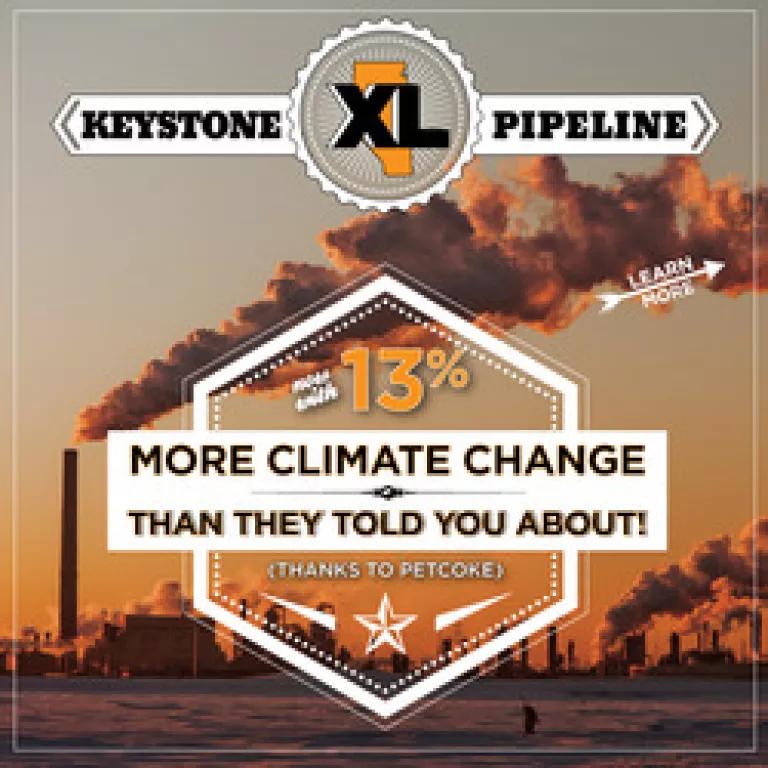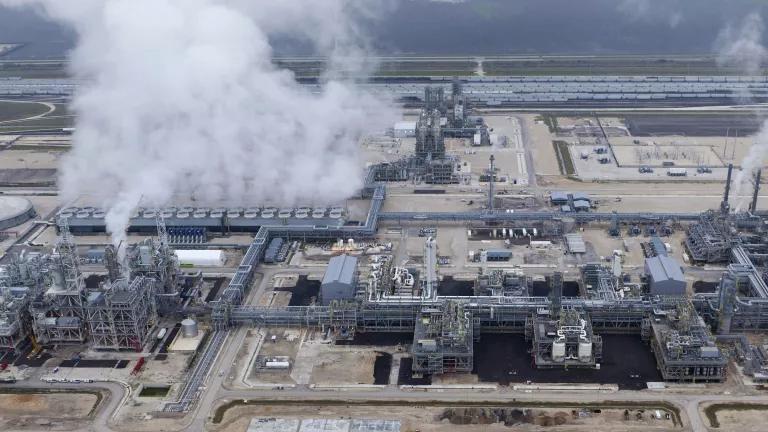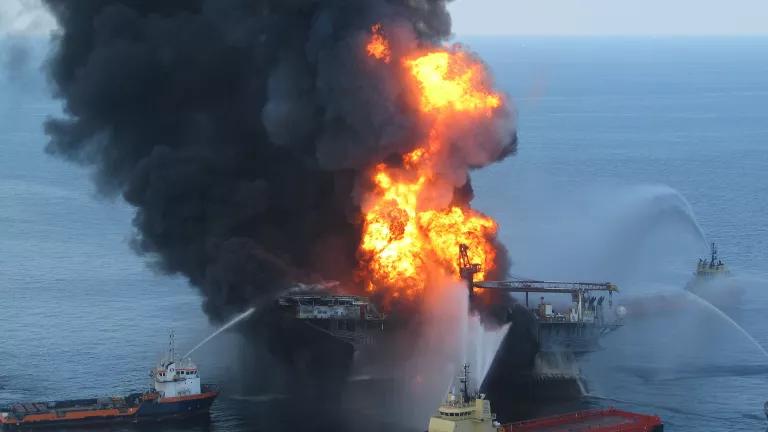New Analysis Shows Simple Math: Keystone XL Pipeline = Tar Sands Expansion = Climate Change

New research confirms what we have heard time and again from the industry itself: the proposed Keystone XL tar sands pipeline will be a direct cause of an increase in tar sands oil development. More tar sands oil taken out of the ground means more dangerous pollution that hurts our climate and health. And, this new research also shows that tar sands will cause even more climate pollution than we previously thought due to the impacts of the high carbon byproduct petroleum coke.
This is especially important in a time where our communities are feeling the damage of climate change in violent storms, wildfires, droughts and floods. Just recently a federal advisory panel—established by Congress in 1990 to analyze climate research—released the draft of its third National Climatic Assessment. The report confirmed there is “unambiguous evidence” that the earth is warming.
The Pembina Institute’s analysis, “The climate implications of the proposed Keystone XL pipeline”, shows that pipelines are a key determinant of tar sands expansion, and argues that the increase in greenhouse gas emissions associated with supplying the Keystone XL pipeline with tar sands bitumen represents a significant barrier to Canada meeting its domestic and international climate commitments.
Oil Change International’s new report “Petroleum Coke: The Coal Hiding in the Tar Sands” reveals that current analyses of the impacts of tar sands fail to account for a high-carbon byproduct of the refining process: petroleum coke. Because it is considered a refinery byproduct, petcoke emissions are not included in most assessments of the climate impact of tar sands. Thus, the climate impact of oil production is being consistently undercounted.
This analysis is making headway in Washington. Energy and Commerce Committee Ranking Member Henry A. Waxman noted: “The new reports show that TransCanada’s Keystone XL pipeline is the key that will unlock the tar sands. If the pipeline is approved, the world will face millions more tons of carbon pollution each year for decades to come. After Hurricane Sandy, devastating drought, unprecedented wildfires, and the warmest year on record in the United States, we know that climate change is happening now, we have to fight it now, and we must say no to this pollution pipeline now.”
And scientists have been weighing in as well. Eighteen of the nation’s top climate scientists released a letter to President Obama urging him to say no to the Keystone XL tar sands pipeline.
Dr. Danny Harvey a climate scientist at the University of Toronto and Dr. John Abraham a climate scientist at the University of St. Thomas in Minnesota joined us recently in DC to focus attention on the climate impacts of the proposed Keystone XL tar sands pipeline.
Dr. Harvey noted that “The human race is in big trouble. There is overwhelming scientific evidence that climate change is real. If Keystone is approved, we’re locking in several more decades of fossil fuels and higher levels of carbon dioxide and global warming.”
And Dr. Abraham told us: “Climate change is the story related to Keystone. The drought and heat wave in Texas cost Texans $5.2 billion. Hurricane Sandy cost us $70 billion. Some people say it’s too expensive to develop clean energy. I say it’s too expensive not to. We can choose to expand clean energy or make the crazy choice to extract and use the dirtiest of the dirty.”
Unions are also speaking up. Dave Coles, National President of the Communications, Energy and Paperworkers Union of Canada (CEP) – a union that includes energy workers - explained: “Climate pollution from the tar sands industry is already considerable and will only get worse with approving Keystone XL. The Keystone XL pipeline would lead to unfettered expansion of bitumen extraction in Canada which does not make sense economically nor for the environment.”
This focus on what the expansion of the Keystone XL tar sands pipeline will mean for our climate, comes at a time when banks, financial analysts and industry sources are all clearly saying that regardless of whether other tar sands transportation projects move ahead, the rejection of the Keystone XL project will curtail the tar sands industry’s expansion plans.
The decision to reject or approve the Keystone XL tar sands pipeline will be one of the most important climate issues facing the Obama administration.
The public in the United States and Canada remains rightly concerned. Thousands will come to Washington, DC on February 17th, President's Day weekend for the Forward on Climate Rally, to oppose the Keystone XL tar sands pipeline and to ask for strong climate leadership and carbon standards to control power plants climate pollution. Join us!




